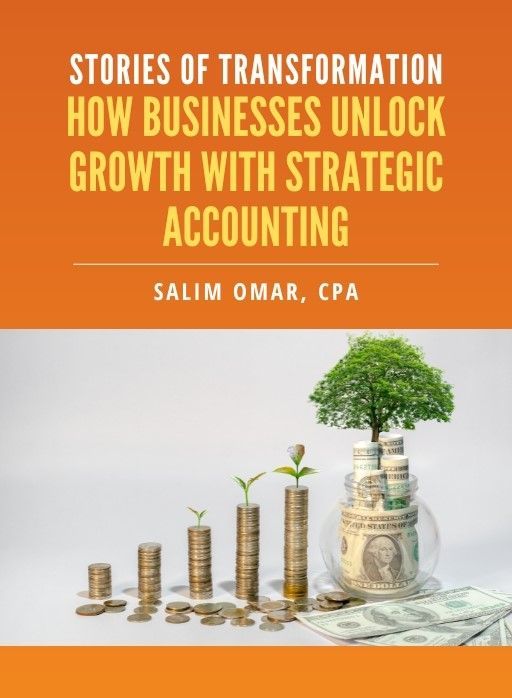The Smart Investor’s Guide to Real Estate Tax Planning: Beyond Deductions
If you ask ten real estate investors how they handle taxes, nine will say some version of, “I write off expenses and take depreciation.” That’s not wrong—it’s just the bare minimum. Here’s the truth: real estate offers some of the most powerful tax advantages in the entire code.
But the investors who build wealth fastest aren’t just deducting repairs. They’re using tax planning as a growth engine—freeing up cash, compounding it into new deals, and protecting it from unnecessary erosion. At Straight Talk CPAs, we don’t treat real estate tax planning as a checklist.
We treat it as an integrated system, aligned with your business, your personal income, and your long-term goals. That’s what separates investors who tread water from those who scale with confidence.
The “Big Three” Everyone Talks About—And Where Most Stop
1. Depreciation & Cost Segregation
Yes, depreciation is powerful. And yes, cost segregation accelerates it. But if you only think of it as “extra deductions,” you’re leaving strategy on the table. Smart investors use it to:
- Free up cash to reinvest this year
- Offset W-2 or active business income through advanced structuring
- Plan exits by coordinating depreciation schedules with future 1031 exchanges
2. 1031 Exchanges
Everyone knows you can defer capital gains. Fewer use 1031s strategically. The real advantage comes when you align them with:
- Portfolio growth goals (using a 1031 to step into a higher-value asset class)
- Estate planning (pairing a 1031 with trust structures to reduce future tax exposure)
- Retirement planning (synchronizing exchanges with income needs)
3. Deductions
Of course, you can deduct repairs, property management, and travel. But deductions aren’t just about lowering this year’s bill. When tracked and structured properly, they can:
- Reduce audit risk by creating a clear categorization
- Signal cash flow patterns that guide smarter financing
- Be optimized through entity selection (e.g., grouping expenses in the right LLCs or partnerships)
Where Straight Talk CPAs Takes It Further
This is where most firms stop. But we go deeper.
1. Integration Across Your Life and Business
Real estate rarely stands alone. If you’re a business owner, high-income earner, or investor with multiple properties, your tax picture touches every corner of your financial life. We integrate:
- Business tax planning → Entity selection, retirement contributions, expense alignment
- Personal tax planning → Offsetting other income streams, planning charitable contributions
- Trust & estate planning → Coordinating your portfolio with your legacy goals
One client combined accelerated depreciation with trust planning. The result? They freed six figures of cash flow today and minimized their heirs’ future tax exposure.
2. Cash Flow as Strategy
We don’t just reduce your taxes—we position your cash to build faster. For example:
- A client used tax savings from a cost segregation study to fund the down payment on their next property within 12 months.
- Another used a coordinated 1031 and retirement strategy to expand into commercial real estate without taking on outside investors.
3. Advisory, Not Just Compliance
We sit at the strategy table with you. Instead of asking “What can I deduct?”, we ask:
- “What’s the fastest way to scale your portfolio without creating a tax drag?”
- “How should this property fit into your retirement, succession, or exit plan?”
That’s not accounting. That’s leadership.
Pro Tips for Real Estate Investors
- Plan exits early. Don’t wait until you’re selling to think about capital gains. Align depreciation, 1031s, and estate strategy years in advance.
- Think in layers. Use tax savings from one property to accelerate the growth of your next.
- Don’t silo advice. If your CPA, financial advisor, and attorney aren’t talking, you’re leaving opportunities (and dollars) on the table.
Why This Matters Now
Real estate is under scrutiny. From changes in depreciation rules to proposals on 1031 exchanges, the tax landscape shifts quickly. A strategy that works today may cost you tomorrow if it’s not monitored and updated.
At Straight Talk CPAs, we monitor these shifts and proactively adjust your plan. That way, you’re not reacting—you’re staying ahead.
Conclusion
Deductions and depreciation are the entry-level moves. But if you want real estate to be more than a side hustle—if you want it to build lasting wealth—you need tax planning that integrates, adapts, and drives growth.
That’s what we do at Straight Talk CPAs.
👉 Ready to stop leaving money on the table?
Free eBook:
Stories of Transformation


Salim is a straight-talking CPA with 30+ years of entrepreneurial and accounting experience. His professional background includes experience as a former Chief Financial Officer and, for the last twenty-five years, as a serial 7-Figure entrepreneur.





